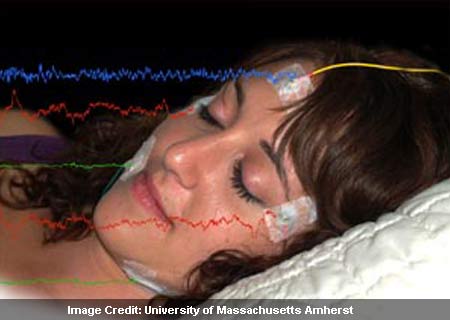Most of us find it hard to eliminate disturbing thoughts from the mind, especially following an untoward incident. On this note, scientists from the University of Massachusetts Amherst have revealed that an individual’s emotional responsiveness is apparently reduced when awake and is conserved while sleeping.
Also, if a flashback of the confusing situation occurs, it is likely to be as intensifying as the first time when the picture was viewed before sleeping. This did not appear to be the case with those who did not sleep after the traumatic event.
Presumably, this attribute could be deeply ingrained in us through the evolutionary phases, as it may have helped our ancestors grasp the intensity of the situation through memories, thereby preventing those incidences in the future.
“We found that if you see something disturbing, let’s say an accident scene, and then you have a flashback or you’re asked to look at a picture of the same scene later, your emotional response is greatly reduced, that is you’ll find the scene far less upsetting, if you stayed awake after the original event than if you slept. It’s interesting to note that it is common to be sleep-deprived after witnessing a traumatic scene, almost as if your brain doesn’t want to sleep on it,” explained UMass Amherst neuroscientist Rebecca Spencer.
Around 106 adults inclusive of 68 females and 38 males in the age-group 18 to 30 were incorporated in the study. Later, in a smaller group of subjects, the team accessed a polysomnograph with electrodes linked to the participants’ scalps as they were sleeping.
Further, the volunteers were exposed to images and instructed to rate each of the images as happy or sad along with their response such as relaxed or excited on a scale of 1 to 9. The participants were segregated into 2 groups namely the sleep group and the wake group. After a span of 12 hours, they were asked to view and rate the images once again.
As per the outcomes, sleep seemingly had substantial effects on the subjects’ memories and thought processes. Remembrance of observed pictures seemed to be enhanced after sleep as compared to wakefulness. The revelations hold immense significance with regards to post traumatic stress disorder, the team believed.
The study is published in the Journal of Neuroscience.

